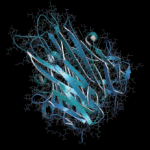Recent research indicates tumor necrosis factor inhibitors may slow disease progression in the spine of patients with axial spondyloarthritis.


Recent research indicates tumor necrosis factor inhibitors may slow disease progression in the spine of patients with axial spondyloarthritis.

WASHINGTON, D.C.—Juvenile idiopathic arthritis (JIA) patients taking TNF inhibitors don’t develop new cancers at a higher rate than JIA patients who don’t take TNF inhibitors, according to the largest study so far conducted to study the possible link. The findings were reported at the 2016 ACR/ARHP Annual Meeting in an abstract session that also included…
Reuters Staff |
NEW YORK (Reuters Health)—There is minimal to no transfer of the tumor necrosis factor (TNF) inhibitor certolizumab (Cimzia) from plasma to breast milk, according to a new study. “These findings are reassuring” and imply that continuing certolizumab treatment is compatible with breastfeeding, Dr. Megan Clowse of Duke University School of Medicine in Durham, North Carolina,…
Lorraine L. Janeczko |
NEW YORK (Reuters Health)—Psoriasis patients treated with tumor necrosis factor-alpha (TNF) inhibitors may have a lower risk of major cardiovascular (CV) events than those treated with methotrexate (MTX), according to a new study. “The findings do not surprise me. TNF inhibitors control inflammation better than methotrexate,” lead author Dr. Jashin J. Wu of Kaiser Permanente…
Anne Harding |
NEW YORK (Reuters Health)—Babies born to mothers who took anti-tumor necrosis factor (anti-TNF) agents during pregnancy have detectable drug in their bodies up to 12 months of age, new findings show. These infants should therefore not receive live vaccines during their first year of life, Dr. Mette Julsgaard of Aarhus University Hospital in Denmark and…

SAN FRANCISCO—To date, evidence on the efficacy of blocking the cytokine tumor necrosis factor (TNF) and its receptors in autoimmune diseases has resulted in the approval by the Food and Drug Administration (FDA) of five anti-TNF agents. Less well known, according to Richard Siegel, MD, PhD, chief, Immunoregulation Section, Autoimmunity Branch, and Clinical Director, NIAMS,…
Laura Newman |
NEW YORK (Reuters Health)—The newer disease-modifying drugs for rheumatoid arthritis appear to offer the same or even better cardiovascular (CV) protection than older tumor necrosis factor (TNF) inhibitors, hints a large study. “We really haven’t had a good understanding on where the non-TNF biologics and CV risk stand,” Dr. Jeffrey R. Curtis of the University…
Laura Newman |
NEW YORK (Reuters Health)—Women with rheumatoid arthritis (RA) are at increased risk for cervical intraepithelial neoplasia (CIN), and those taking a tumor necrosis factor (TNF) inhibitor are at increased risk of cervical cancer, according to a study from Sweden. “Whether this (the increase in invasive cancers) was due to the TNF inhibitors, disease severity, or…
Lorraine L. Janeczko |
NEW YORK (Reuters Health)—Rituximab may calm juvenile idiopathic arthritis (JIA)-associated uveitis and especially benefit patients who haven’t responded to other biologic treatments, a study from Italy suggests. With its convenient dosing schedule, rituximab may be a new treatment option for patients with autoimmune diseases, especially for those who have not responded to tumor necrosis factor…
Anti-tumor necrosis factor agents may have cardioprotective effects in rheumatoid arthritis patients